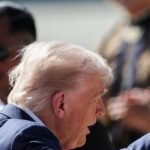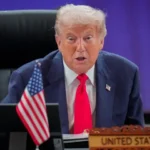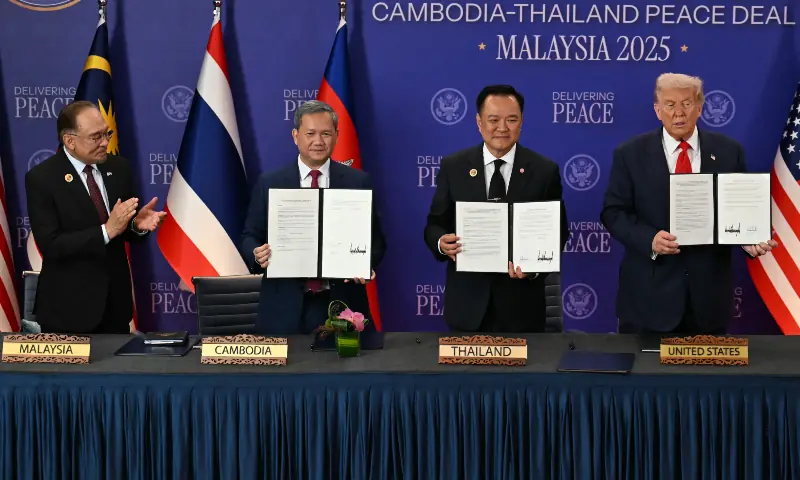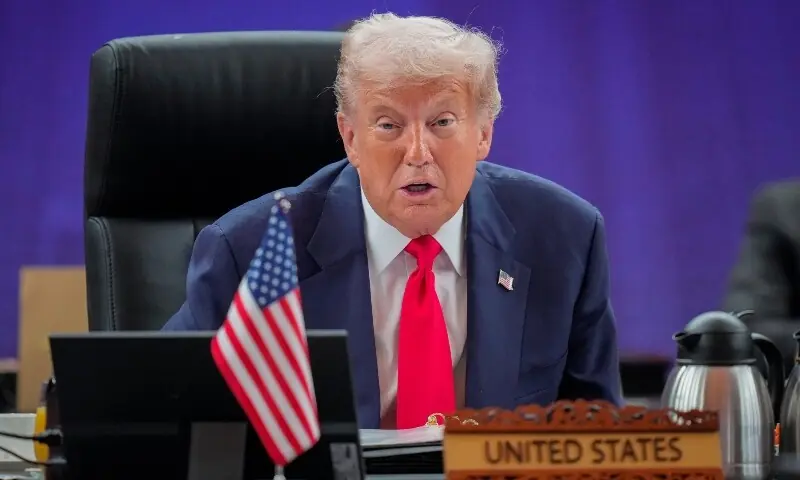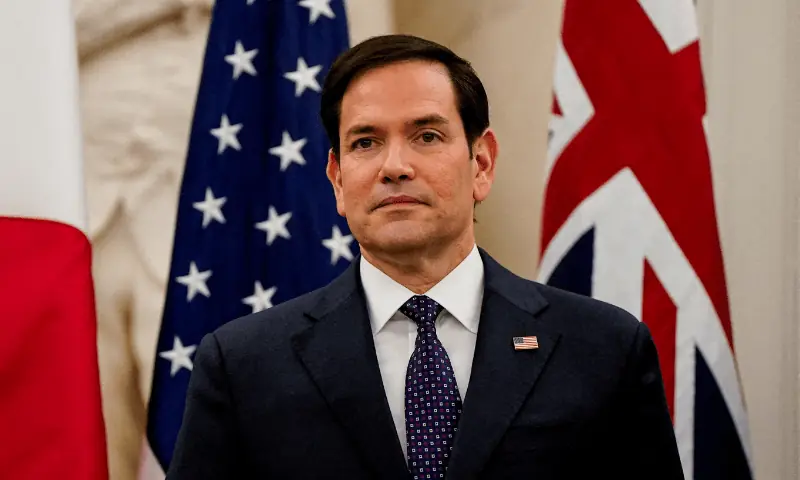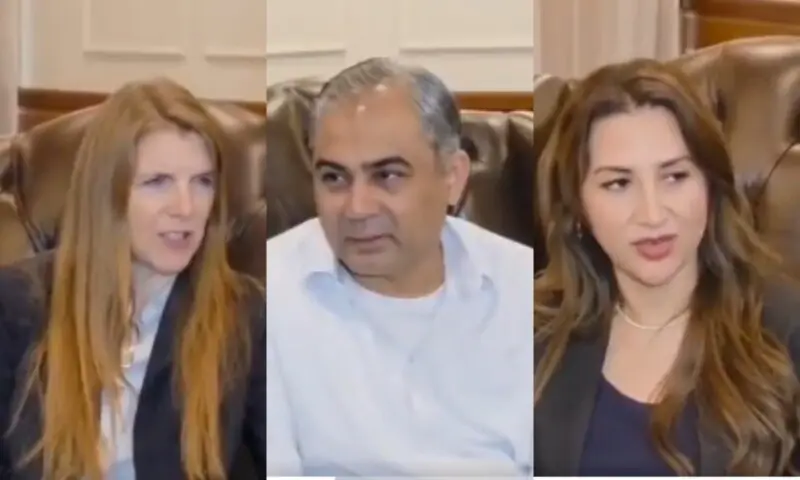US President Donald Trump co-signed a ceasefire agreement between Thailand and Cambodia in Malaysia during the first stop of his Asia tour, which is expected to culminate in talks with Chinese leader Xi Jinping.
The ceasefire, following a bloody border dispute, was signed by Thai Prime Minister Anutin Charnvirakul and Cambodian Prime Minister Hun Manet, as well as Trump and Malaysian Prime Minister Anwar Ibrahim.
The agreement will see the release of 18 Cambodian prisoners of war, according to a statement from the Cambodian Ministry of Foreign Affairs.
Clashes broke out between Thailand and Cambodia in July, killing more than 40 people and forcing some 300,000 to flee their homes.
While the neighbors agreed to an initial ceasefire in late July, they have since exchanged accusations of violations.
In their joint statement, witnessed by Trump, Anutin and Hun Manet reiterated their “firm commitment to refrain from the threat or use of force.”
“We reaffirm the unwavering commitment to peace and security between our two countries,” reads the agreement, signed by both, who shared a strong handshake.
Trump congratulated the prime ministers.
“This is a momentous day for all the people of Southeast Asia as we sign a historic agreement to end the military conflict between Cambodia and Thailand,” he said.
The US president added that he had also signed “an important trade agreement with Cambodia and a very important critical minerals agreement with Thailand.” Analysts have said a final comprehensive peace pact between the Southeast Asian neighbors remains pending.
Malaysian Foreign Minister Mohamad Hasan, who has been closely involved in the talks on behalf of Asean, has said the latest agreement focuses on establishing regional observers in conflict zones.
“We want there to be no more violations of the ceasefire because after July 28, although the ceasefire was in effect, there were… minor violations,” Mohamad said.
“Both countries should remove their respective heavy weapons from relevant areas and secondly, both countries should make efforts to demine or remove and destroy mines that have been laid on the borders of both countries,” he added.
